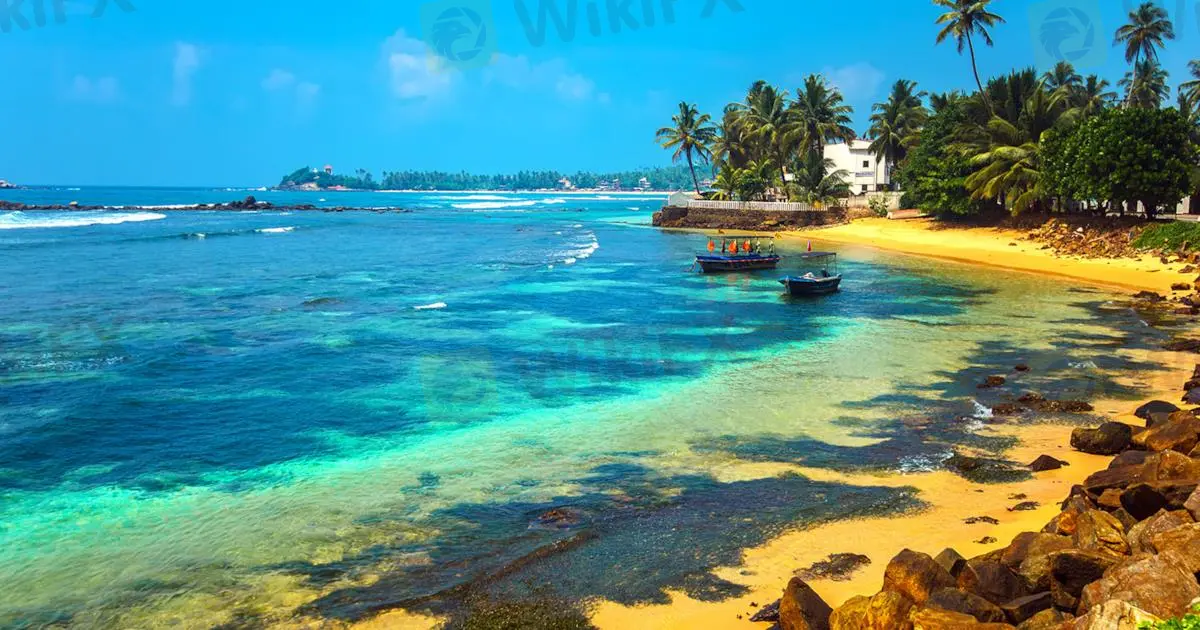简体中文
繁體中文
English
Pусский
日本語
ภาษาไทย
Tiếng Việt
Bahasa Indonesia
Español
हिन्दी
Filippiiniläinen
Français
Deutsch
Português
Türkçe
한국어
العربية
Sri Lanka currency falls sharply as economic crisis deepens
Abstract:Sri Lanka's worst economic crisis since independence has led to fuel and electricity rationing across the South Asian nation of 22 million

The Sri Lankan rupee fell sharply against the dollar Thursday, after the country's central bank ordered a 15 percent depreciation in a bid to stave off a looming economic collapse sparked by a shortage of foreign currency.
The country's worst economic crisis since independence has led to fuel and electricity rationing across the South Asian nation of 22 million, crippling public transport and causing long queues for food and medicine.
The coronavirus pandemic battered the island's tourism sector -- a key foreign currency earner -- sparking fears the country may not be able to repay its $51 billion foreign debt.
Traders said the rupee Thursday sank 11.53 percent against the US dollar, the island's main foreign trading currency, as authorities struggled to raise cash to finance desperately-needed oil imports.
The state-run Ceylon Petroleum Corporation (CPC) has asked the government to urgently raise the retail price of oil in a bid to save itself from bankruptcy.
This week's depreciation added another 198 billion rupees ($760 million) to service the firm's foreign debt of $3.3 billion, official figures showed.
The Central Bank of Sri Lanka on Monday night announced it would allow “greater flexibility” in the exchange rate, which had been pegged at 197 rupees to the dollar since last April.
But it then backtracked, telling commercial banks that it would not intervene to shore up the rupee.
The remarks led to a sharp depreciation when markets opened on Thursday, traders said, with exporters expecting a further fall in the currency's value.
The CPC is losing 120 rupees on every litre of diesel sold at the current government-regulated price, chief Sumith Wijesinghe said.
“If we had the authority to increase (the price), we would have done it already,” Wijesinghe told reporters.
The government has said it hopes to soon import $500 million worth of oil under a credit line from India to address the local shortages.
On Wednesday, the government tightened restrictions on a wide range of imports -- from whisky to kitchen appliances -- to save foreign exchange and finance essential imports such as oil, food and medicines.
An import ban was already introduced in March 2020 on big-ticket items such as cars, in an effort to stop the outflow of dollars needed to pay Sri Lanka's debts.
Milk powder, sugar, lentils and wheat, as well as medicine, are in short supply.
The International Monetary Fund last week urged Colombo to devalue its currency and raise taxes, warning the cash-strapped country that its foreign debt was “unsustainable”.
Disclaimer:
The views in this article only represent the author's personal views, and do not constitute investment advice on this platform. This platform does not guarantee the accuracy, completeness and timeliness of the information in the article, and will not be liable for any loss caused by the use of or reliance on the information in the article.
Read more

Twin Scam Alert: Broker Capitals is a New Domain of Finex Stock
This week, the Italy financial regulator CONSOB issued a warning against an unlicensed broker named Broker Capitals. When we clicked on Broker Capitals' website, its logo, trade name, and design seemed familiar to us.

Berkshire CEO-designate Abel sells stake in energy company he led for $870 million
Berkshire Hathaway Inc said on Saturday that Vice Chairman Greg Abel, who is next in line to succeed billionaire Warren Buffett as chief executive, sold his 1% stake in the company’s Berkshire Hathaway Energy unit for $870 million.

Paying particular heed to payrolls
A look at the day ahead in markets from Alun John

Dollar extends gains against yen as big Fed hike bets ramp up
The dollar extended it best rally against the yen since mid-June on Monday, buoyed by higher Treasury yields after blockbuster U.S. jobs data lifted expectations for more aggressive Federal Reserve policy tightening.
WikiFX Broker
Latest News
High-Potential Investments: Top 10 Stocks to Watch in 2025
US Dollar Insights: Key FX Trends You Need to Know
Why Is Nvidia Making Headlines Everywhere Today?
Discover How Your Trading Personality Shapes Success
FINRA Charges UBS $1.1 Million for a Decade of False Trade Confirmations
Bitcoin in 2025: The Opportunities and Challenges Ahead
BI Apprehends Japanese Scam Leader in Manila
Big News! UK 30-Year Bond Yields Soar to 25-Year High!
SQUARED FINANCIAL: Your Friend or Foe?
Join the Event & Level Up Your Forex Journey
Currency Calculator






